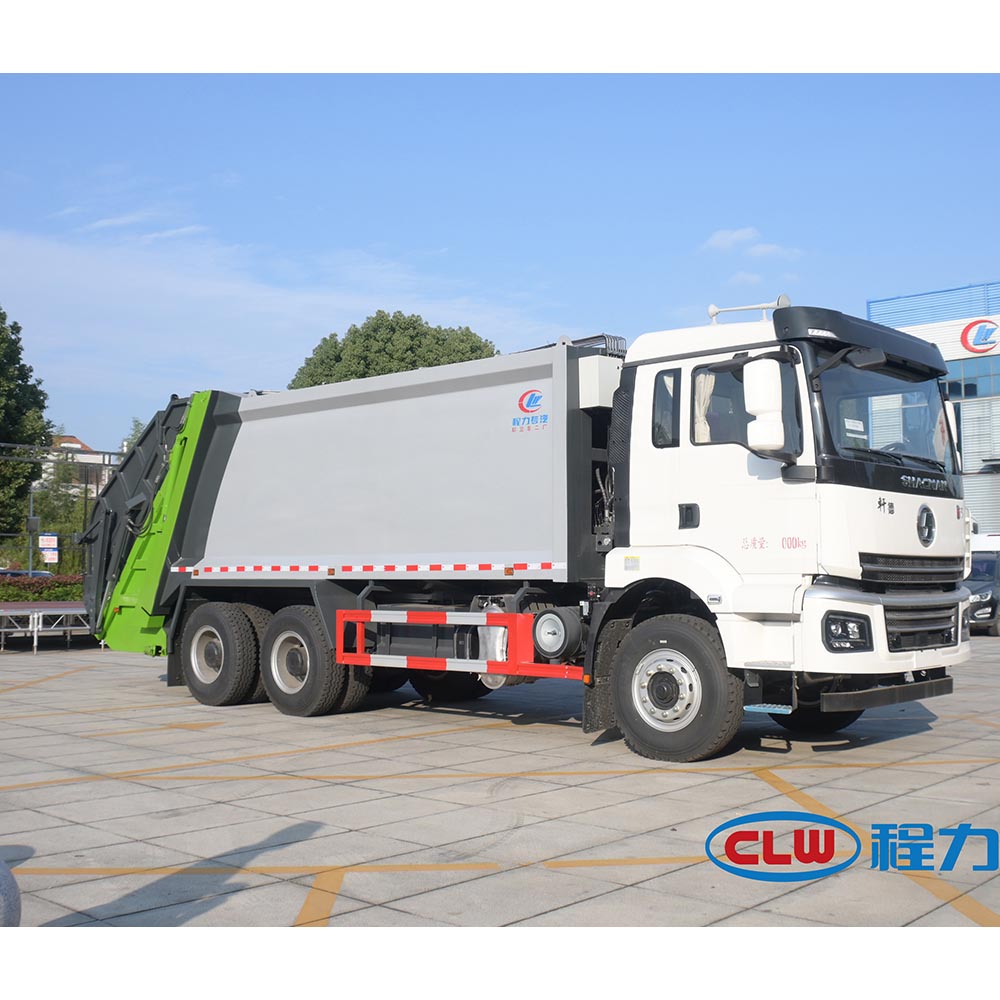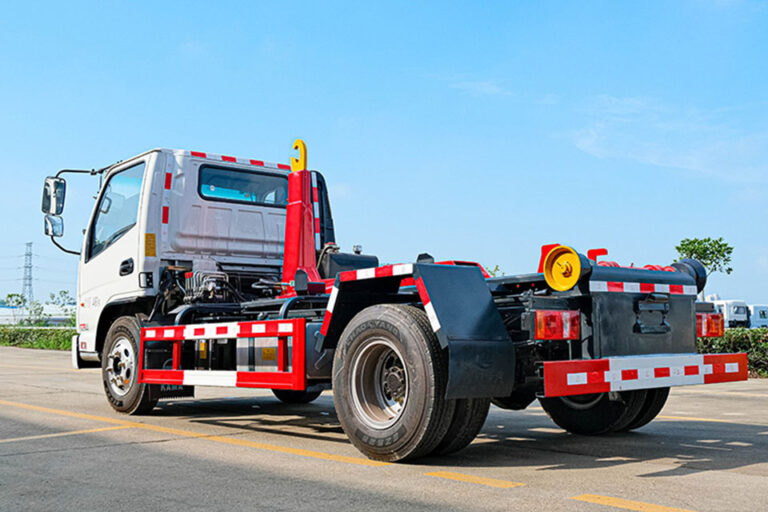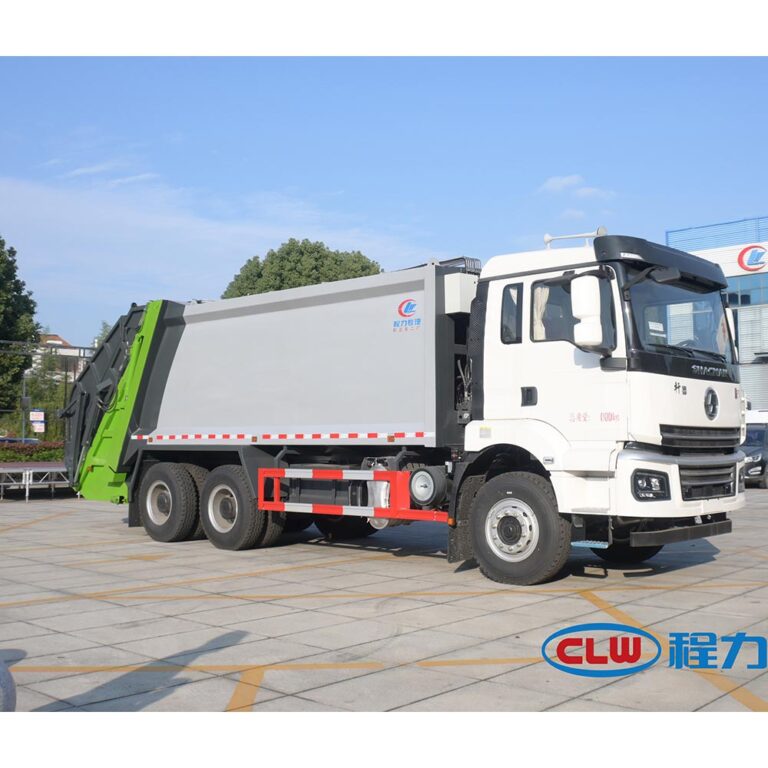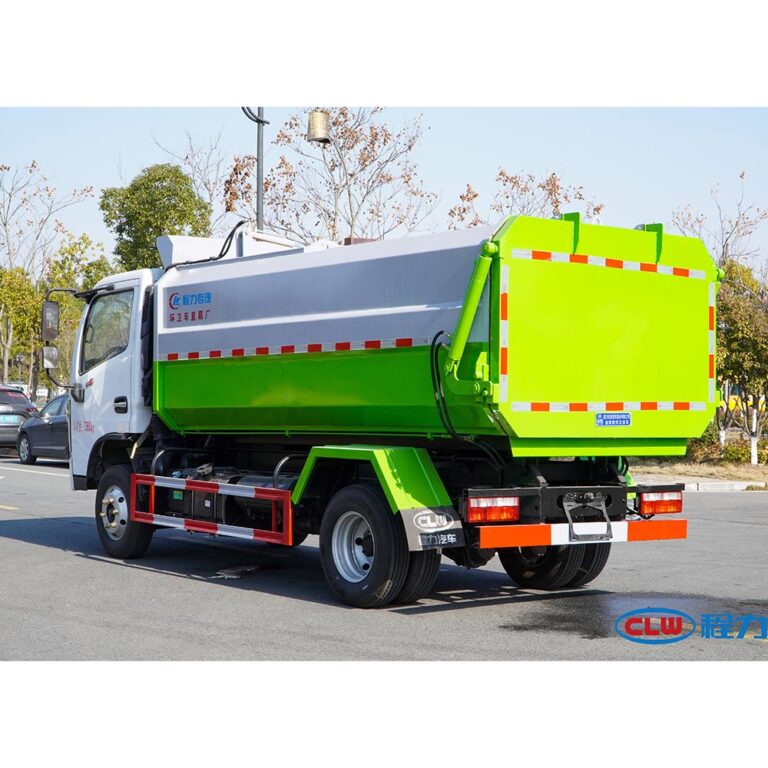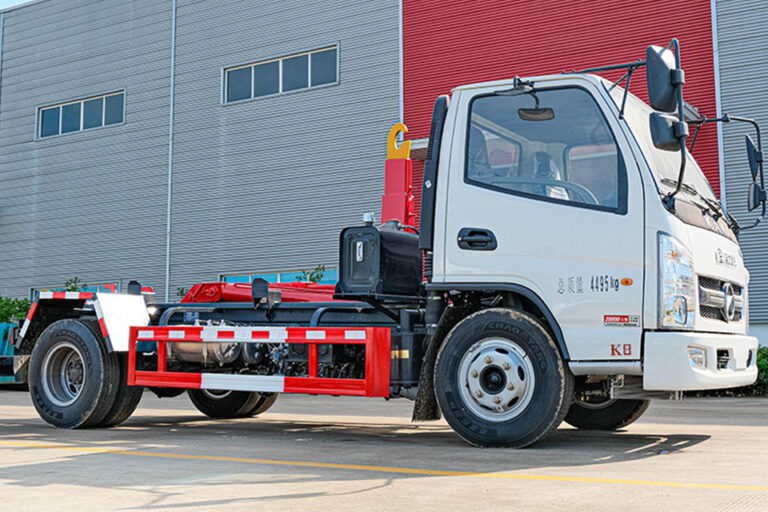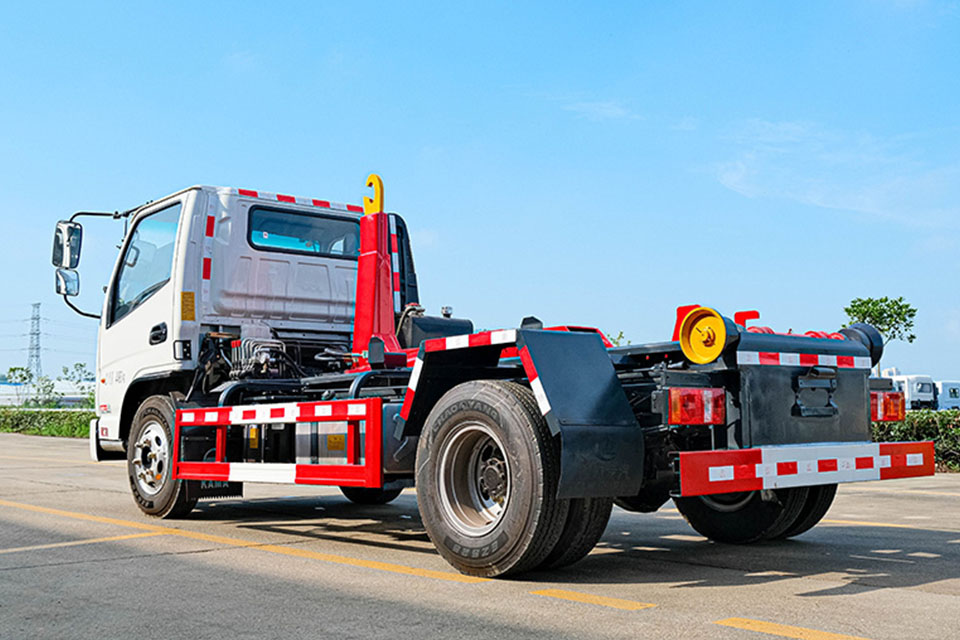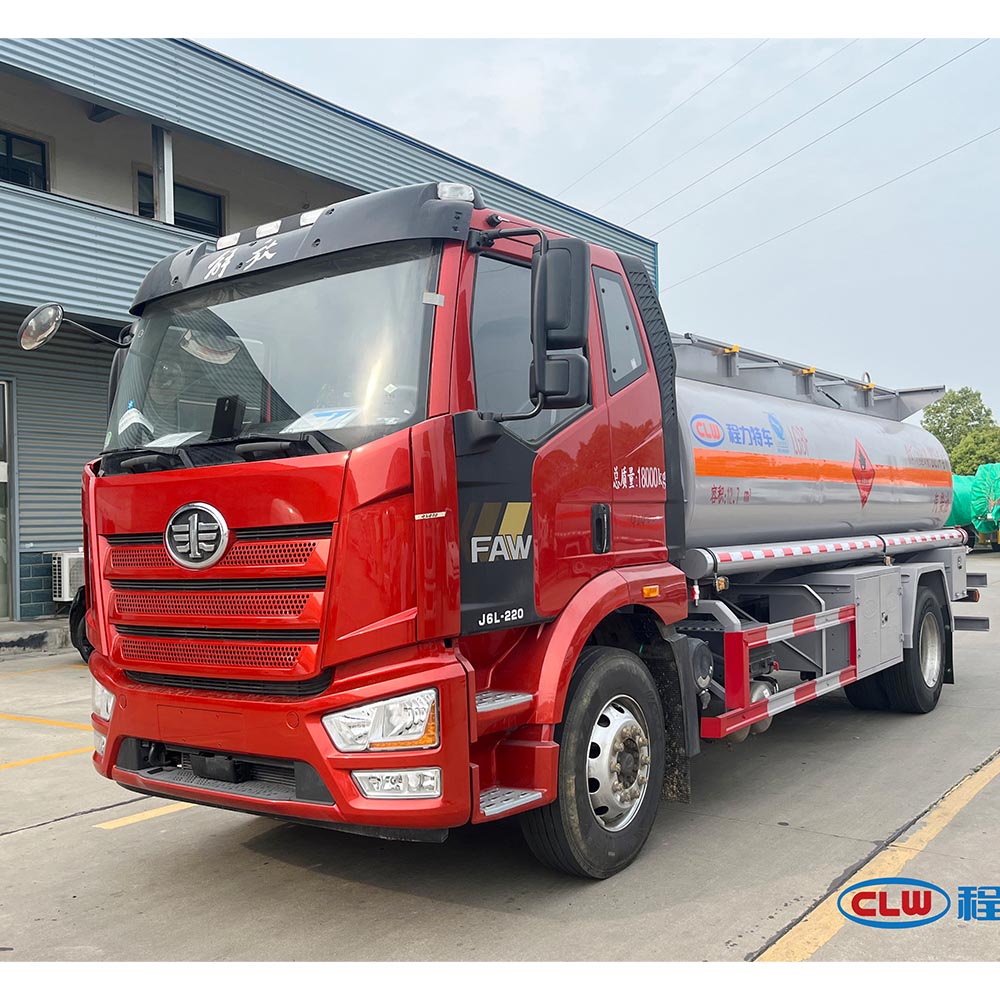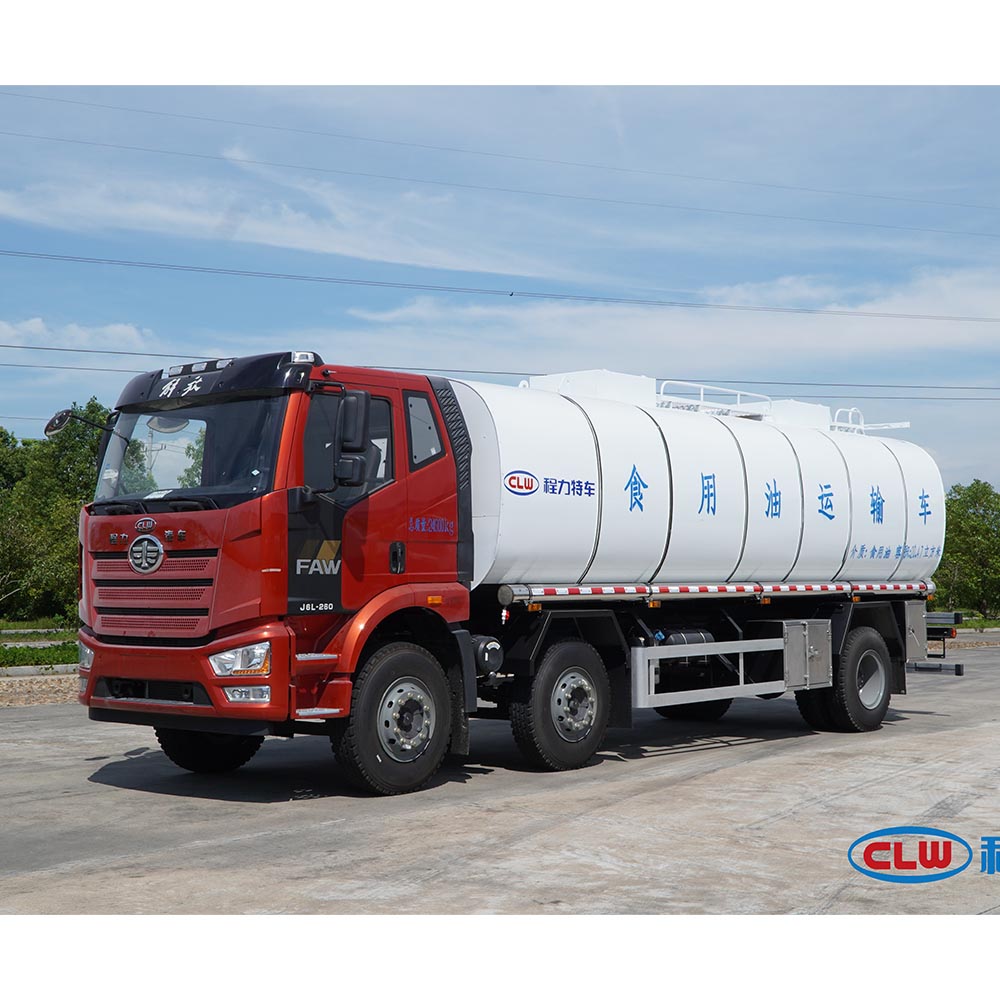-
Parque Industrial Automóvel de Chengli
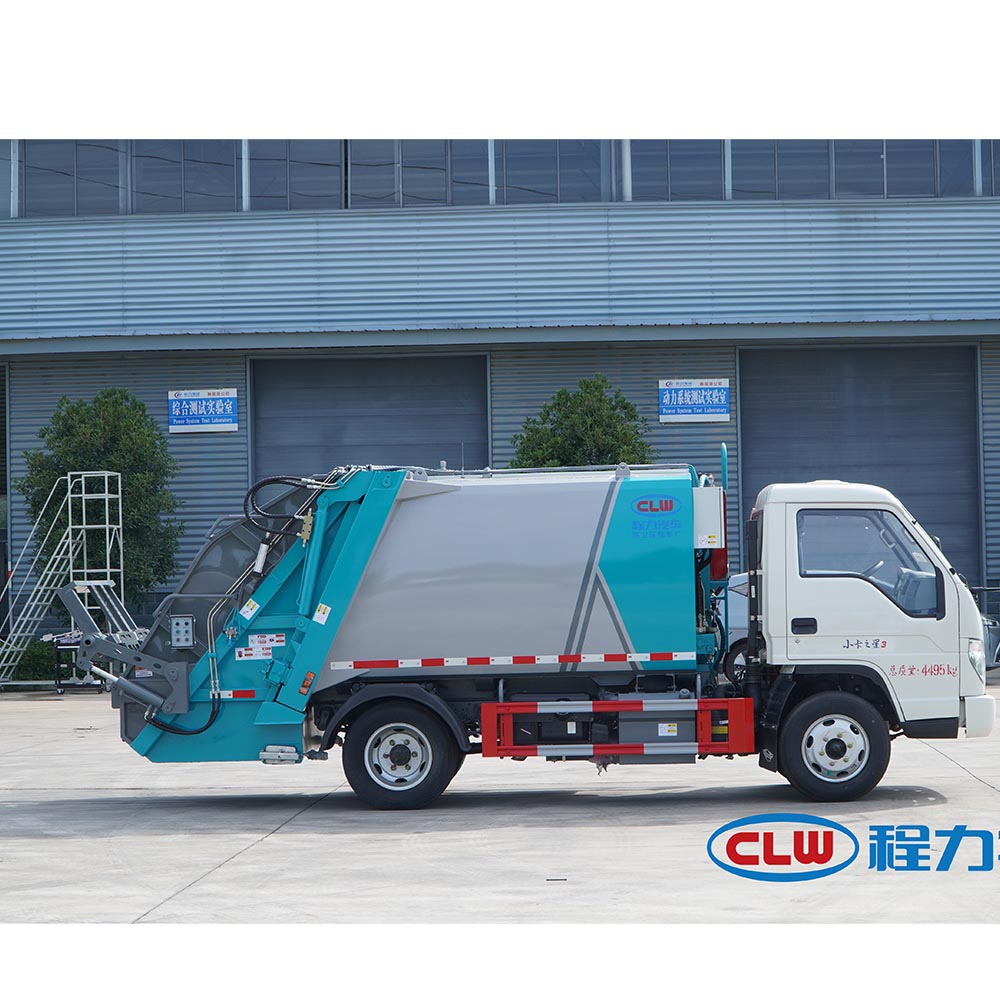
qual é a diferença entre um camião do lixo com carregador lateral e um camião do lixo com carregador traseiro
Revolucionar a recolha de resíduos: O guia definitivo para os diferentes tipos de camiões de lixo
Este artigo mergulha no fascinante mundo do Os camiões de recolha de resíduos são essenciais para uma recolha eficiente de resíduos é um serviço essencial prestado pelos camiões de recolha de resíduos nas comunidades. nas zonas urbanas., explorando as diferentes Os camiões de carregamento traseiro são cruciais para uma recolha de lixo eficaz. são concebidos para levantar os resíduos e transportá-los para o aterro sanitário. disponíveis, com especial destaque para a camião do lixo com carregador traseiro. Vamos descobrir as caraterísticas, vantagens e aplicações únicas de cada tipo, fornecendo informações valiosas para municípios, agências governamentais, empresas privadas A gestão eficaz de resíduos depende fortemente das capacidades dos camiões do lixo. gestão de resíduos indústria. Quer pretenda otimizar a sua O camião do lixo é um componente vital do sistema de remoção de resíduos. O camião de carregamento traseiro pode ter um impacto significativo na eficiência da recolha de lixo. ou racionalizar recolha de resíduos comerciaisEste guia completo fornecer-lhe-á os conhecimentos necessários para tomar decisões informadas.
Índice
1. Quais são os principais tipos de camiões de lixo utilizados atualmente?
O recolha de resíduos A indústria depende de uma frota diversificada de veículos especializados para recolher e transportar resíduos de forma eficiente. Estes veículos de recolha de resíduos são concebidos para lidar com vários fluxos de resíduos e cenários de recolha. Embora existam muitas variações, as mais comuns são tipos de camiões de lixo incluir carregadores traseiros, carregadores lateraise Os carregadores laterais automatizados transformaram a forma como a remoção de resíduos é efectuada.. Adicionalmente, camiões de descarga e camiões de garra desempenham papéis cruciais em tarefas específicas de gestão de resíduos.
Cada tipo de camião do lixo oferece vantagens únicas em função das necessidades específicas do recolha de resíduos operação. Os camiões do lixo com carregador traseiro são concebidos para recolher os resíduos carregados lateralmente. são versáteis e normalmente utilizados tanto para recolha de lixo residencial e comercial. Camiões do lixo com carregador lateral, nomeadamente Algumas vantagens notáveis dos contentores de grandes dimensões incluem a sua capacidade para a eliminação de resíduos comerciais.estão a ganhar popularidade pela sua eficiência em recolha de resíduos domésticos. Os camiões do lixo com carregador frontal estão equipados para lidar com grandes volumes de resíduos. destacar-se em recolha de resíduos comerciais, tratando eficazmente grandes contentores do lixo.
Como líder camião do lixo fábrica, compreendemos a importância de selecionar a tipo de camião do lixo para as suas necessidades específicas. A nossa equipa de especialistas pode guiá-lo através do processo de seleção, garantindo que escolhe a solução mais eficiente e económica para as suas gestão de resíduos operações.
2. Como funciona um camião do lixo com carregador traseiro?
Camiões do lixo com carregador traseiro são comuns tanto em zonas residenciais como comerciais. Caracterizam-se por uma abertura na retaguarda onde resíduos é carregado. Estes camiões continuam a ser preferidos pela sua simplicidade, eficácia e versatilidade.
Estes os camiões têm sistema hidráulico sistemas de embalagem que comprimem o material recolhido resíduos sólidos, maximizando a capacidade do camião. Esta caraterística permite carregadores traseiros para recolher montantes substanciais de resíduos antes de precisar de esvaziar o conteúdo num instalação de tratamento de resíduos ou aterro sanitário.
Tipicamente, camiões com carregador traseiro pode capacidade até 40 metros cúbicos de compactação lixo. O processo de compactação reduz significativamente o volume de resíduos, permitindo que estes camiões para recolher mais resíduos por viagem e otimizar as rotas de recolha. Os trabalhadores levantam manualmente caixotes do lixo e contentores do lixo e esvaziá-los no funil no traseira do camião.
3. Quais são as vantagens de utilizar um camião de lixo com carregador traseiro?
Camiões do lixo com carregador traseiro tornaram-se uma referência no indústria de gestão de resíduos. Os camiões comerciais são utilizados principalmente para a eliminação em zonas urbanas.
- Versatilidade: Os carregadores frontais são outro tipo distinto de camião do lixo utilizado na recolha de resíduos. pode lidar com uma vasta gama de resíduos materiais, incluindo resíduos volumosos, resíduos residenciaise resíduos comerciais. São adequados para a recolha de resíduos tanto de zonas residenciais como de empresas com contentores de resíduos.
- Custo-eficácia: Carregadores traseiros são geralmente mais acessíveis do que outros tipos de camiões, como carregadores laterais ou carregadores frontais. Isto torna-os uma opção atractiva para municípios mais pequenos ou empresas de gestão de resíduos com restrições orçamentais.
- Facilidade de manutenção: Em comparação com os camiões do lixo, carregadores traseiros têm normalmente sistemas mecânicos mais simples, o que torna a sua manutenção mais fácil e menos dispendiosa.
4. Porquê escolher um camião de lixo com carregador lateral para a recolha de resíduos residenciais?
Camiões do lixo com carregador lateral são especificamente concebidos para recolha de resíduos domésticos. Estes os camiões estão equipados com um braço mecânico que levanta e esvazia caixotes do lixo posicionados ao longo do passeio. Existem dois tipos principais: carregadores laterais manuais e carregadores laterais automáticos.
- Carregador lateral manual: Estes camiões exigem que um trabalhador posicione manualmente o caixotes do lixo para o mecanismo de elevação.
- Carregador lateral automatizado: Carregadores laterais automatizados só precisa de um operador que controla o braço mecânico a partir do interior da cabina. Isto acelera significativamente o processo de recolha e reduz os custos de mão de obra.
Camiões carregadores laterais estão a tornar-se cada vez mais populares para recolha de resíduos domésticos devido à sua eficiência e à redução da necessidade de mão de obra. Carregador lateral e carregador traseiro os camiões são ambos utilizados em recolha de resíduos domésticos.
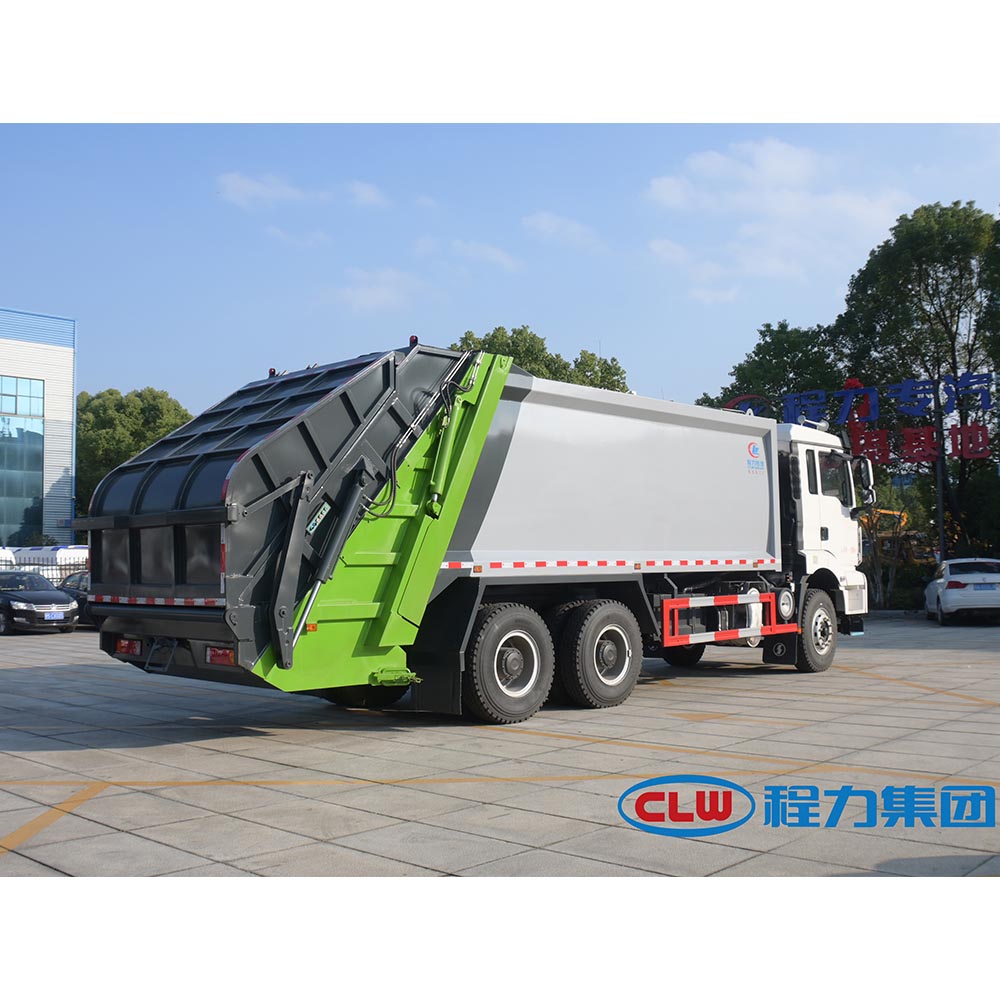
5. Quando é que os camiões do lixo com carregador frontal são a melhor escolha?
Camiões do lixo com carregador frontal são os cavalos de batalha de recolha de resíduos comerciais. Estes camiões são facilmente reconhecíveis pela grande forquilhas na frente do veículo. Estes garfos são utilizados para levantar e esvaziar grandes contentores do lixo normalmente utilizado por empresas comerciais e industriais. O contentor do lixo é levantado sobre o camião e esvaziou-se no funil.
Camiões do lixo com carregador frontal utilizar um sistema hidráulico potente para compactar o material recolhido resíduos, maximizando a sua capacidade. Camiões do lixo com carregador frontal podem normalmente conter até 40 jardas cúbicas de compactação resíduostornando-os ideais para empresas que geram grandes volumes de resíduos.
Camiões do lixo com carregador frontal são mais frequentemente utilizados para recolher resíduos de empresas, complexos de apartamentos e estaleiros de construção. São os camião de escolha quando se trata de grandes e pesados contentores do lixo.
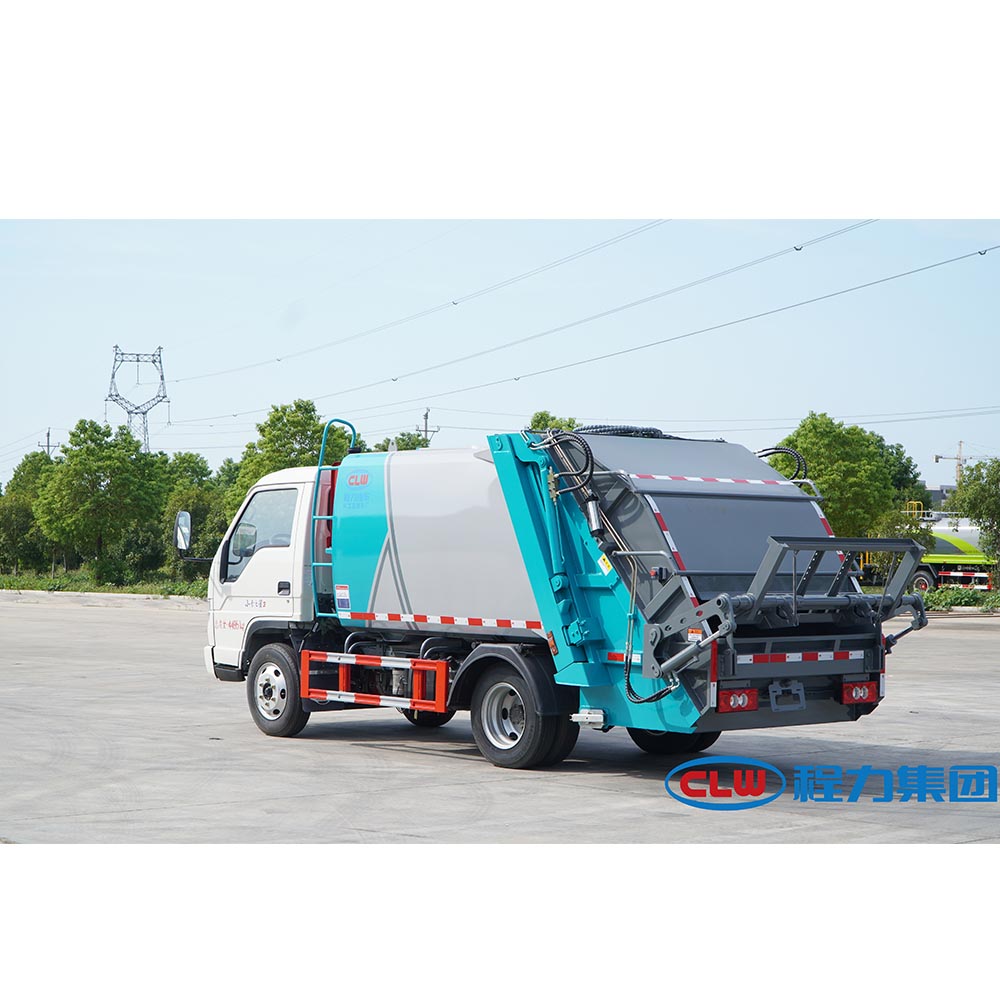
6. Qual é o papel dos camiões de caixa aberta na gestão de resíduos?
Camiões de descarga desempenham um papel crucial na especialização gestão de resíduos particularmente em cenários de construção, demolição e industriais. Diferente de carregador traseiro, carregador lateral, ou camiões carregadores frontais, camiões de descarga não recolher resíduos diretamente. Em vez disso, são utilizados para transportar grandes contentores de topo aberto, frequentemente designados por roll-off contentores do lixo.
Estes contentores existem em vários tamanhos, normalmente entre 10 e 40 jardas cúbicas. São concebidos para serem facilmente carregados na parte de trás do camião de descarga utilizando um guincho Existem diferentes tipos de camiões para a recolha de resíduos domésticos. Uma vez que o contentor está cheio, o camião de descarga transporta-o para um instalação de tratamento de resíduos ou aterro sanitário para eliminação.
7. Qual o impacto dos diferentes tipos de camiões de lixo na eficiência da recolha de resíduos?
A escolha de camião do lixo tem um impacto significativo na eficiência da recolha de resíduos operações. Cada tipo de camião do lixo foi concebido para fluxos de resíduos e cenários de recolha.
| Caraterística | Carregador traseiro | Carregador lateral | Carregador frontal |
| Tipo de coleção | Residencial e comercial | Principalmente residencial | Principalmente comercial |
| Tipo de resíduos | Resíduos mistos, artigos volumosos | Resíduos residenciais contentorizados | A traseira da carroçaria do camião foi concebida para facilitar o acesso durante a recolha do lixo. |
| Eficiência | Moderado | Elevado (especialmente carregadores laterais automáticos) | Elevado para grandes volumes de resíduos |
| Requisitos laborais | Normalmente, são necessários vários trabalhadores | Pode ser operado por uma pessoa (automatizado) | Normalmente requer um operador |
| Custo | Custo inicial geralmente mais baixo | Custo inicial mais elevado (especialmente automatizado) | Custo inicial mais elevado |
| Manobrabilidade | Bom | Bom, especialmente em espaços apertados | Pode ser difícil em espaços apertados |
| Compactação | Boa capacidade de compactação | Normalmente, boa compactação | Excelentes capacidades de compactação |
| Capacidade | Até 40 jardas cúbicas (compactadas) | Varia, normalmente inferior ao dos carregadores frontais | Até 40 jardas cúbicas (compactadas) |
| O caso de utilização ideal para os camiões de caixa aberta é em projectos de construção e demolição. | Recolha versátil e mista de resíduos | Recolha eficiente de resíduos domésticos | Recolha de resíduos comerciais de grande volume |
| Limitações | Pode ser mais lento do que os carregadores laterais automáticos | Menos eficaz para artigos volumosos | Não é ideal para zonas residenciais com espaços reduzidos |
| Manutenção | Manutenção relativamente simples | Pode ser mais complexo (automatizado) | Pode ser mais complexo |
| Nível de competência do operador | Moderado | Moderada (manual), Baixa (automatizada) | Moderado a elevado |
Por exemplo, carregadores laterais automáticos pode melhorar significativamente a eficiência em recolha de resíduos domésticos reduzindo o número de trabalhadores necessários e acelerando o processo de recolha. Carregadores traseiros oferecem versatilidade, enquanto carregadores frontais excelente no tratamento de grandes volumes de resíduos comerciais.
8. Quais são as principais considerações a ter em conta na seleção de um camião de lixo?
Escolher o melhor camião do lixo é uma decisão crítica para qualquer município ou gestão de resíduos empresa. Há vários factores que devem ser cuidadosamente considerados:
- Fluxos de resíduos: O que é que tipos de resíduos será que o camião a recolher? (por exemplo, resíduos residenciais, resíduos comerciais, resíduos industriais, resíduos volumosos)
- Volume da coleção: Quanto resíduos precisa de ser recolhido diariamente ou semanalmente?
- Rota de recolha: Qual é a natureza do percurso de recolha? (por exemplo, ruas estreitas, espaços apertados, tráfego intenso)
- Orçamento: Qual é o orçamento para a aquisição e manutenção do camião?
- Custos de mão de obra: Quantos trabalhadores estão disponíveis para recolha de resíduos?
- Regulamentos ambientais: Existe alguma regulamentação ambiental específica que deva ser considerada? (por exemplo, normas de emissões)
- Manutenção: Pode efetuar a manutenção internamente ou vai depender do concessionário?
9. Como é que os camiões de lixo estão a evoluir para satisfazer as necessidades modernas de gestão de resíduos?
O indústria de gestão de resíduos está em constante evolução, e camiões do lixo estão a evoluir juntamente com ela. Os fabricantes estão a desenvolver tecnologias inovadoras para melhorar a eficiência, reduzir o impacto ambiental e aumentar a segurança. Algumas das principais tendências incluem:
- Automatização: Carregadores laterais automatizados estão a tornar-se cada vez mais populares devido à sua capacidade de reduzir os custos de mão de obra e melhorar a eficiência.
- Combustíveis alternativos: Muitos municípios estão a fazer a transição para camiões do lixo alimentados por combustíveis alternativos, como o gás natural comprimido (GNC) ou a eletricidade, para reduzir as emissões e melhorar a qualidade do ar. Oferecemos uma gama de opções de combustíveis alternativos para os nossos camiões do lixo, incluindo o Camião de lixo elétrico puro.
- Tecnologias inteligentes: Camiões do lixo estão a ser equipados com tecnologias inteligentes, tais como localização por GPS, software de otimização de rotas e sensores para monitorizar resíduos níveis em contentores. Estes dados podem ser utilizados para melhorar a eficiência da recolha e reduzir os custos operacionais.
10. Porque é que a manutenção adequada do camião do lixo é crucial?
A manutenção regular é essencial para manter o seu camião do lixo frota a funcionar de forma eficiente e segura. Uma frota bem conservada camião do lixo é menos suscetível de se decompor, o que pode perturbar recolha de resíduos e levar a reparações dispendiosas.
- Segurança: As inspecções e a manutenção regulares ajudam a identificar e a resolver potenciais problemas de segurança, protegendo tanto os trabalhadores como o público.
- Eficiência: Bem conservado camiões funcionam de forma mais eficiente, consumindo menos combustível e reduzindo as emissões.
- Longevidade: Uma manutenção adequada prolonga a vida útil do seu camiões do lixomaximizando o retorno do seu investimento.
- Poupança de custos: A manutenção preventiva é sempre mais económica do que lidar com avarias inesperadas e grandes reparações.
Prestamos serviços completos de manutenção e reparação para todos os tipos de camiões de lixo. Os nossos técnicos experientes podem ajudá-lo a manter a sua frota nas melhores condições, minimizando o tempo de inatividade e maximizando a produtividade. Também oferecemos Camião varredor elétrico puro da marca Chengligarantindo que as suas operações permanecem amigas do ambiente.
FAQs
Que tipo de camião do lixo é melhor para a recolha de resíduos residenciais?
Carregadores laterais automatizados são geralmente considerados os mais eficientes para recolha de resíduos domésticos devido à sua capacidade de serem operados por uma única pessoa e à sua rapidez na recolha resíduos a partir da berma caixotes. No entanto, carregadores traseiros também pode ser eficaz, especialmente em zonas com ruas estreitas ou resíduos volumosos.
Qual a quantidade de resíduos que um camião do lixo pode conter antes de ter de ser esvaziado?
A capacidade de um camião do lixo varia consoante o tipo e o modelo. Carregadores traseiros e carregadores frontais podem normalmente conter até 40 jardas cúbicas de compactação resíduos. Carregadores laterais têm geralmente uma capacidade mais pequena.
Qual é a diferença entre um carregador lateral manual e um carregador lateral automático?
A carregador lateral manual requer um trabalhador para posicionar manualmente o caixotes do lixo para o mecanismo de elevação. Um carregador lateral automático só precisa de um operador que controla o braço mecânico a partir do interior da cabina, tornando-o mais eficiente.
Quais são as vantagens de utilizar um camião do lixo com carregador frontal?
Camiões do lixo com carregador frontal são ideais para recolha de resíduos comerciais porque podem tratar eficazmente grandes contentores do lixo. Têm também excelentes capacidades de compactação, maximizando a sua capacidade.
Que opções de combustível estão disponíveis para os camiões do lixo?
Para além do diesel tradicional, existem opções de combustíveis alternativos como o gás natural comprimido (GNC) e modelos eléctricos. Por exemplo, oferecemos o Camião de aspersão elétrico puro Chengli, proporcionando uma solução ecológica para a limpeza urbana.
Com que frequência deve ser feita a manutenção de um camião do lixo?
A manutenção regular é crucial. Recomenda-se que siga as diretrizes do fabricante, que normalmente incluem verificações diárias, inspecções semanais e uma manutenção mais abrangente de poucos em poucos meses.
Conclusão
- Camiões do lixo são ferramentas essenciais para uma gestão de resíduos.
- Existem vários tipos de camiões de lixo, cada um concebido para resíduos cenários de recolha.
- Carregadores traseiros são versáteis e rentáveis.
- Carregadores laterais, nomeadamente carregadores laterais automáticossão ideais para recolha de resíduos domésticos.
- Carregadores frontais destacar-se em recolha de resíduos comerciais, que trata de grandes contentores do lixo com facilidade.
- Camiões de descarga são cruciais para o transporte de grandes contentores na construção civil e na indústria.
- Escolher o melhor camião do lixo depende de factores como fluxos de resíduosO volume de recolha, as caraterísticas das rotas, o orçamento e os custos de mão de obra.
- Camiões do lixo estão a evoluir com os avanços da automatização, dos combustíveis alternativos e das tecnologias inteligentes.
- Uma manutenção adequada é essencial para garantir a segurança, a eficiência e a longevidade do seu sistema de recolha de resíduos. camião do lixo frota.
- Contacte-nos hoje para saber mais sobre a nossa gama de camiões de lixo para venda e como podemos ajudá-lo a otimizar o seu gestão de resíduos operações. Também oferecemos opções especializadas como o Camião de lixo de compressão de 5m³ e o versátil Camião de lixo comprimido Chengliwei para várias necessidades de gestão de resíduos.
Como líder camião do lixo A nossa empresa está empenhada em fornecer aos nossos clientes produtos de alta qualidade, fiáveis e inovadores. recolha de resíduos soluções. Compreendemos os desafios únicos enfrentados pelos municípios, agências governamentais e empresas privadas de gestão de resíduos, e dedicamo-nos a ajudá-lo a alcançar os seus objectivos. gestão de resíduos objectivos. Contacte-nos hoje e experimente a diferença que a nossa experiência e compromisso com a excelência podem fazer.
